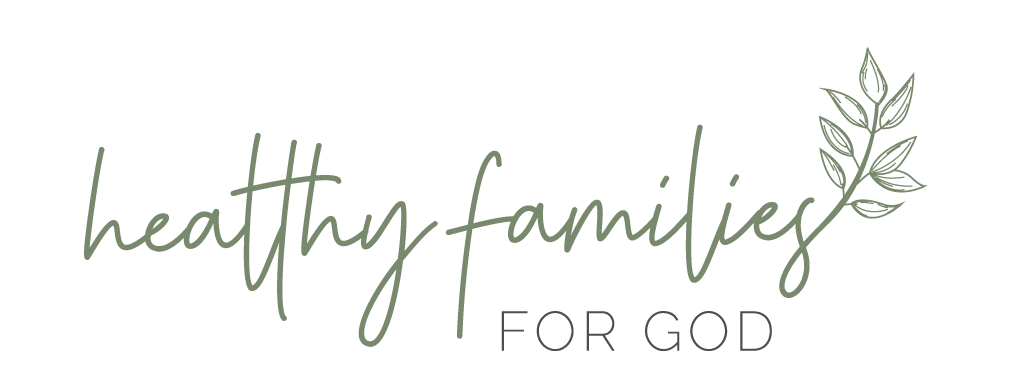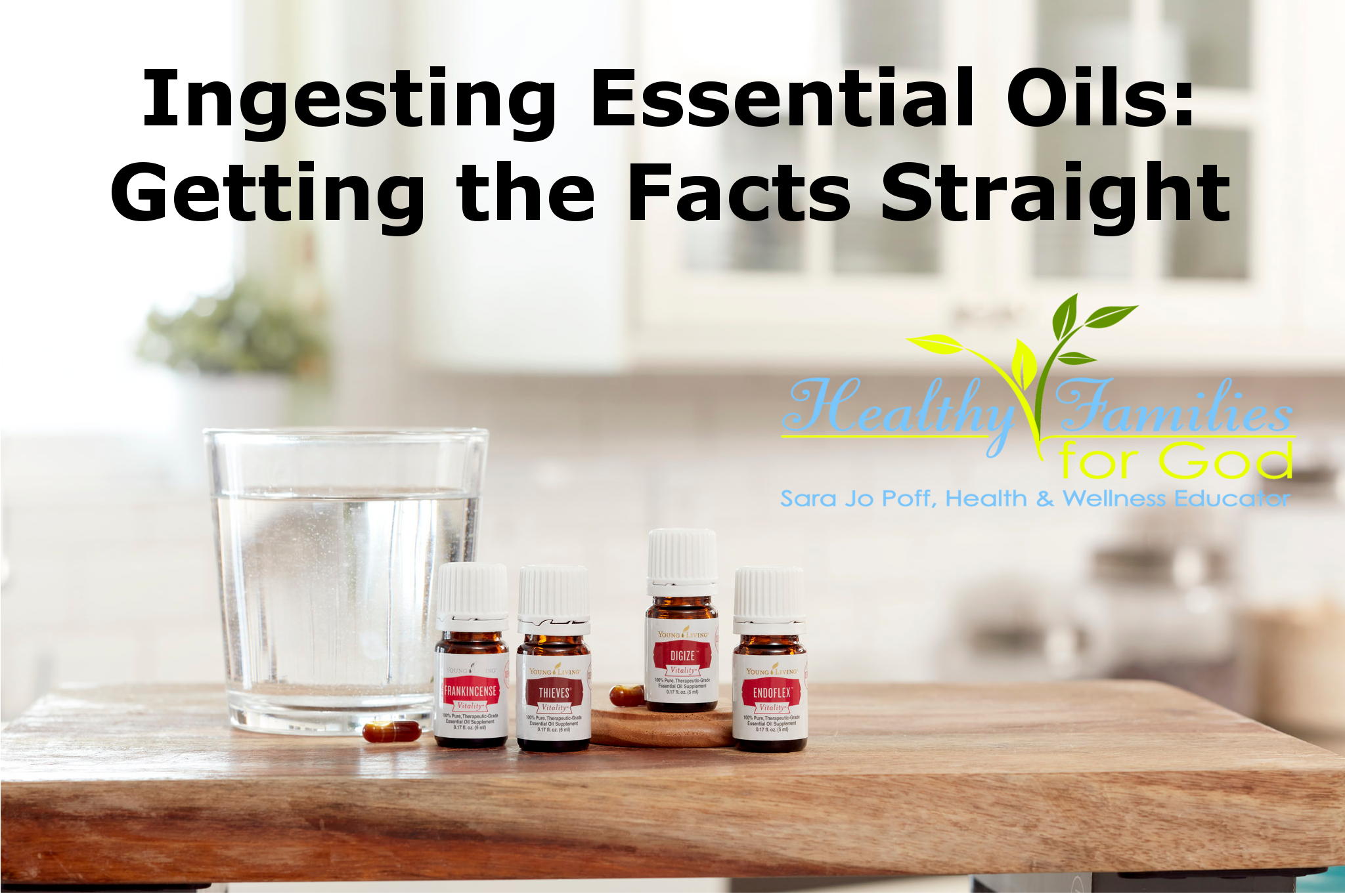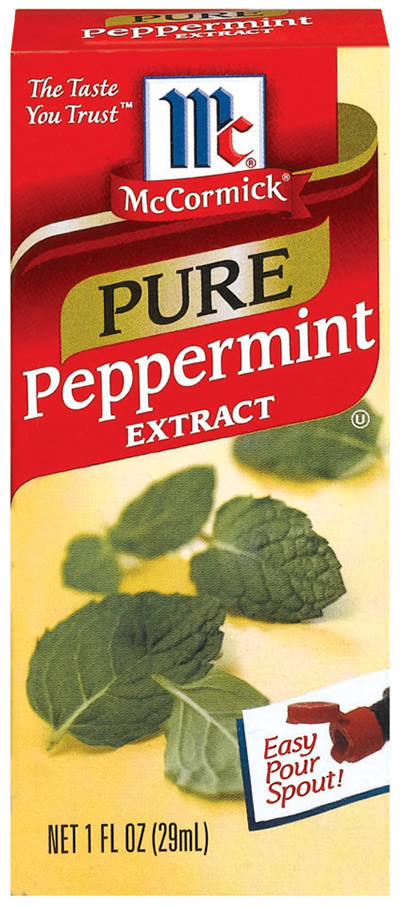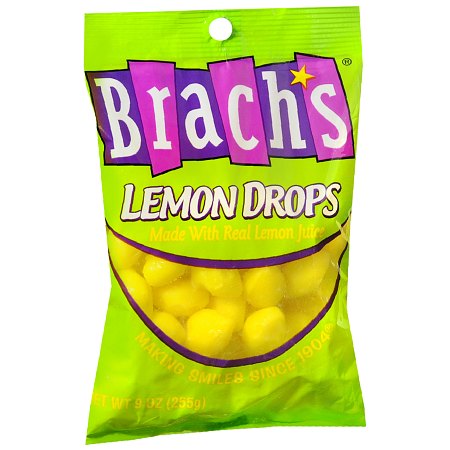There is a lot of debate about whether or not it is safe to ingest essential oils, and the answer isn't just a matter of a simple "yes" or "no." But the answer is much more simple than it is made out to be lately.
Unfortunately, there are a lot of myths and false information on this topic. These myths and misinformation are dangerous because warnings against ingesting essential oils cause people to lose out on one of the most potent, valuable, God-given therapies available to us. This post is going to bring you the FACTS as demonstrated by proven research and simple biology.
But before I begin, I want to clarify that this post will be discussing the facts of ingesting PURE essential oils--and essential oils that are what they say they are. (For example, many companies produce a product labeled as lavender essential oil which is often produced with lavandin, a plant that produces a product similar to lavender.)
Use of store-bought or any other essential oils where quality is not prioritized, where synthetic fillers are likely, or where plants are not specifically produced and harvested specifically for tested therapeutic qualities is NOT recommended. When it comes to ingesting essential oils, I only recommend those that contain dietary labels and are approved for this purpose.
Simple Biology: Skin vs. Gut
Claiming that essential oils applied to the skin are much safer than ingesting them ignores the simple fact that anything applied to the skin is absorbed into the bloodstream in under a minute (26 seconds to be precise). There are no filters or filtration process before this happens.
On the other hand, when we ingest essential oils, they are processed through the digestive process which includes saliva, stomach acid, and additional filtration through the liver, kidneys, intestines, etc., before the essential oil and its natural chemical constituents are absorbed into the bloodstream.
There are so many uneducated warnings about ingesting essential oils, but that time would be better spent warning against the toxic products like lotions, soaps, and other products that are applied to our skin, enter our bloodstream quickly, and negatively effect our hormones and our body down to the cellular level, even activating dangerous epigenetic changes to DNA, within seconds.
Essential Oils' Effect on the Liver & Kidneys
One of the common warnings against ingesting essential oils is that it is harmful to the liver and even the kidneys. While this may be true with cheap essential oils containing synthetic fillers and true in toxic high doses of pure essential oils, this couldn't be farther from the truth when it comes to appropriate use of pure, therapeutic essential oils!
In fact, there is plenty of evidence and research demonstrating that pure dietary essential oils actually SUPPORT liver health! I have spent hours and hours reading through research studies to get to the bottom of this and found exactly the opposite of what most people say on this topic.
Essential Oils' Effect on the Gut
As many of my followers know, gut health is something we talk about a lot! It is crucial for good health! So this is definitely an important area to look at with essential oils!
Despite what some bloggers say, dietary essential oils have actually been proven to SUPPORT healthy gut flora! Unlike Man-made things, plant oils have the God-given wisdom to target what they should and not what they shouldn't!
Claiming that essential oils should not be used internally based on the claim that they are detrimental to the body's microflora demonstrates a sheer lack of basic physiology. We have more bacteria than cells in/on our body. It is everywhere, not just in our gut. It is on our skin.
Conventional food products containing essential oils
What some people also don't realize is that there are many food products that already contain plant oils! Here are just a few examples of things people have no concerns about using that contain plant oils:
Peppermint Extract
(Contains alcohol, peppermint oil, water.)
Honey Mints
(Contains chocolate, honey, and oil of peppermint)
Girl Scouts Thin Mints
(Contains peppermint oil)
Lemon Drops
(Contains lemon oil)
Anyway, you get the point! Plant oils are in foods (and food-like products) all the time! There have even been numerous research studies demonstrating that essential oils would be great food additives for ensuring food safety. The warnings against ingestion of essential oils is completely ignorant to these obvious facts.
What Do The Experts Say?
Robert Tisserand, Essential Oil Safety
Many followers of Tisserand incorrectly use his book to warn against ingesting essential oils. This baffled me when I read his book and noticed that it actually gave instructions for ingesting essential oils! Here is his response to these incorrect followers:
Kurt Schnaubelt, PhD
Schnaubelt holds a Ph.D. in chemistry and is the founder and scientific director of the Pacific Institute of Aromatherapy in San Francisco. Here is his position on ingesting essential oils:
"The discussion about the safety and overall usefulness of ingesting essential oils has gone on for a long time; it consists mainly of a superficial back and forth of talking points provided by different parties with vested interests. Obviously those engaged in the manufacture and distribution of adulterated oils, knowing about the added natural or synthetic chemicals, will warn against ingesting essential oils.It appears, however, that ingesting a drop of such oils is harmless, based on all the experience gathered in aromatherapy and from what is known about the toxicity of quite a number of essential oils.
Common sense helps resolve the issue. While there are essential oils that are toxic when ingested, the question immediately arises: should, for example, authentic Lemon oil not be ingested just because adultered essential oils may contain harmful chemicals, or because some ketone-containing essential oils may be toxic? In other words, limiting the discussion to a general "ingestion yes" or an "ingestion no" misses the point.
The questions that need to be answered are which essential oils can be ingested and what is the benefit?
Compared to the hundreds of thousands of deaths caused by the wrongful application of conventional medicines and the hundreds of thousands more deaths caused by known side effects of conventional drugs, the journeys to explore essential oils are innocent and utterly harmless.
But they're bad for the intestinal lining!! Nope. Check this out:
To Conclude
Remember: When it comes to ingesting essential oils, I only recommend those that contain dietary labels and are approved for this purpose. Please do not ingest essential oils that are purchased at the store!
Yes, there are essential oils that are specifically labeled as dietary supplements. You can click here to see the full line of essential oils specifically approved and labeled for internal use.
Not only does this company contain essential oils approved as dietary supplements but they also contain an extensive line of dietary supplement products such as digestive enzymes, immune-supporting capsules, and much more.
Appropriate ingestion of essential oils is the position supported by this blog. Because they are concentrated forms of a plant's beneficial properties, a little goes a long way! Use them safely and appropriately, whether internally, topically, or aromatically, and your health will thank you!
If you are ready to start your essential oil journey but want to ensure that you are getting under the guidance and leadership of a knowledgeable team that can help you use them appropriately, safely, and effectively, click here to read more about Our Team.
And no, I don't recommend internal use because I "sell" essential oils. I recommend internal use appropriately and safely as a holistic health care practitioner, which I was and have been long before I began "selling" essential oils.
Blessings of good health,
~Sara Jo Poff, #1565710
Holistic Health Practitioner











